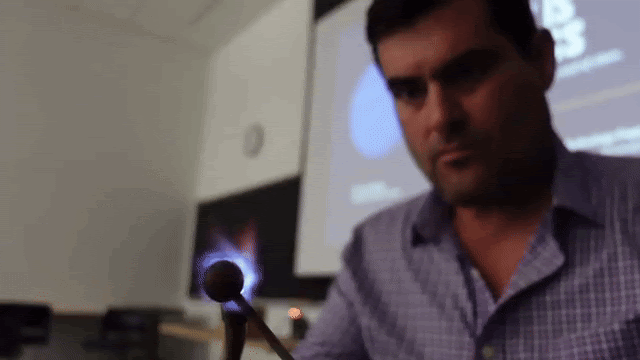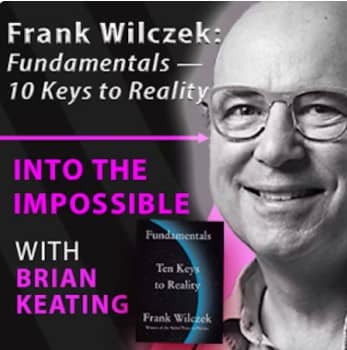The Galilean Paradox: When Recognition Corrupts Discovery
Dear Magicians,
The Wisdom of Years
A meditation on Kinney & Smith’s forgotten truths and the enduring triumph of human experience over algorithmic efficiency.
Picture this: It’s 1992. The Berlin Wall is still fresh rubble, the Soviet Union is a year dead, and in the ivory towers of America, two researchers named Kinney and Smith are asking a question that would make today’s HR departments break into nervous sweats: Does getting old make you a worse teacher?
Back then, mandatory retirement was still a thing—imagine that quaint notion in our current gerontocracy where 80-year-olds run companies and countries with the vim of teenagers hopped up on Red Bull and delusions of immortality.
The Uncomfortable Truth
The findings? A significant but small impact of age, varying by discipline. The data suggested that in humanities and social sciences, age actually correlated with better teaching performance, while in physical and biological sciences, the opposite held true.
Translation: Your crusty philosophy professor pontificating about Nietzsche’s mustache might actually be hitting pedagogical peaks, while your organic chemistry instructor could be phoning it in from the molecular level.
But here’s where it gets deliciously ironic—and melancholy. Uncapping of mandatory retirement appears to raise no major concerns for dramatic deterioration in teaching effectiveness in an aging professoriate. In other words, we were worried about nothing.
The Ghosts of Lectures Past
There’s something profoundly wistful about this research today. In 1992, the biggest technological disruption in higher education was probably the transition from overhead projectors to PowerPoint. Professors were evaluated on whether they could still command a classroom, inspire young minds, and transmit knowledge through the ancient art of human connection.
Fast-forward three decades, and we’re in the midst of an existential crisis about whether professors will exist at all. OpenAI’s GPT models can now explain quantum mechanics with more patience than most humans, generate personalized curricula, and never have bad hair days or coffee breath during 8 AM lectures.
The beautiful irony? Just as we discovered that aging professors weren’t the problem we thought they were, we’re now grappling with whether human professors—of any age—are becoming obsolete.
The Algorithm Doesn’t Have a Story
Here’s what Kinney and Smith’s research really tells us: teaching isn’t just information transfer. It’s not a data dump from one brain to another, optimizable through better algorithms and faster processing speeds.
The disciplines where older professors excelled—humanities and social sciences—are exactly the fields that require what machines still struggle with: contextual wisdom, life experience, the ability to connect abstract concepts to the messy reality of human existence. Your 65-year-old literature professor who’s weathered three recessions, raised children, buried parents, and witnessed the rise and fall of multiple presidents brings something to Shakespearean tragedy that no AI model can replicate: the gravitas of lived experience.
This is why we should actively seek out older mentors and teachers. They’ve accumulated something no algorithm can download: the weight of years, the texture of failure, the hard-won wisdom that comes from surviving multiple cycles of certainty shattered and rebuilt.
The Paradox of Peak Performance
The study’s findings reveal a beautiful truth: expertise isn’t linear. In some fields, accumulated wisdom trumps neural plasticity. In others, fresh eyes matter more. Sometimes, the professor who’s taught the same course 47 times brings a depth of understanding that the fresh PhD with their shiny new methodology simply cannot match.
We need to resist the efficiency trap. Not everything valuable can be optimized, compressed into bite-sized modules, or delivered through the most convenient channel. Some knowledge requires marination. Some wisdom only comes through repetition, failure, and the slow accumulation of pattern recognition that takes decades to develop.
The Human Element in an Algorithmic Age
Yes, AI can generate personalized lesson plans and provide instant feedback. But can it look a struggling 19-year-old in the eye and say, “I was lost once too, and here’s what I learned”?
This is where we need to value the human elements in our own learning and teaching. The moments that transform us aren’t usually perfectly crafted explanations. They’re the off-script conversations, the shared vulnerabilities, and the recognition of our common humanity in the face of difficult material.
I remember my quantum mechanics professor who stopped mid-lecture one day and said, “You know, I’ve been teaching this for twenty years, and I still don’t really understand it. But I’ve learned to be comfortable with the mystery.” That moment of intellectual humility taught me more about science than any equation ever could.
These are the stories we need to share—transformative teaching moments that involved human empathy, not just information transfer.
A Future Worth Fighting For
The effect does not begin until faculty members reach their mid-forties and does not seem to increase even when they reach the former retirement ages of 65 or 70. This data point contains a profound truth: we don’t simply decay after some arbitrary peak. We evolve, adapt, and in many cases, improve.
We need to advocate for educational approaches that emphasize human connection over technological solutions.Not because technology is evil, but because it’s incomplete. The future won’t be won by perfect algorithms, but by imperfect humans who understand that knowledge without wisdom is just data, that teaching without empathy is just information transfer.
Most importantly, here’s what we must do: Stop treating human connection as a nice-to-have add-on to “real” learning. Stop apologizing for the messy, inefficient, gloriously human process of one person helping another understand something difficult. Support institutions and educators who recognize this truth.Advocate for the irreplaceable value of lived experience in education and mentorship.
The machines will get smarter, faster, and more efficient. They’ll probably teach calculus better than most humans within the decade. But they’ll never know what it’s like to have their heart broken by a thesis defense gone wrong, to feel the pride of watching a struggling student finally grasp a complex concept, or to understand that sometimes the most important thing you can teach someone isn’t in the syllabus.
In the end, Kinney and Smith’s research doesn’t just tell us about age and teaching performance. It tells us about the irreplaceable value of human experience, accumulated over time, shared across generations, and embodied in the simple act of one person helping another learn.
And that, my friends, is a victory that no algorithm can claim.
Until next time, have a M.A.G.I.C. Week,
Brian
Appearance
My newest podcast, The Scientists, is getting great momentum— it was picked up by my friends at Podcast Notes here!
I am not sponsored but I did get you, my beloved audience, a discount — Join Podcast News premium here or use Code IMPOSSIBLE 25% off for an annual subscription.
I’ve had one for 4 years!
This article is paywalled but I really think it’s worth a look! Here’s a Podcast Notes piece from my last interview with Nobel Prize winner Frank Wilczek.
Image
Want to see NSF–DOE Rubin Observatory’s Cosmic Treasure Chest for yourself?
Explore using Rubin’s Skyviewer! There are billions of pixels to explore, and you might be the the first to lay eyes on a small, distant galaxy!
Conversation
What if you could see the universe change in real time?
Today’s podcast with Professor Mario Juric, unlocks the secrets of the Vera Rubin Observatory—a once-in-a-generation experiment capturing cosmic events as they unfold. Paired with LIGO, JWST, Simons Observatory, and IceCube, Rubin isn’t just taking pictures—it’s rewriting the playbook of astronomy.
This conversation is exclusive to The INTO THE IMPOSSIBLE Podcast. Don’t miss your chance to witness the future of multi-messenger discovery—before the rest of the world does.
Advertisement
If you’re a STEM professional or aspire to be, I know you’ll love my STEM self-help book, Think Like a Nobel Prize Winner. It’s full of actionable tips from the world’s most brilliant but relatable geniuses. They’ll teach you to overcome the imposter syndrome, collaborate with your competition, and thrive in today’s cutthroat academic environment.
Read the first chapters for free here.
Upcoming Episode
Upcoming Guest: Lawrence Krauss will be on The INTO THE IMPOSSIBLE Podcast soon. A theoretical physicist, bestselling author, and public intellectual, Krauss is known for boldly tackling the biggest questions in cosmology—from the origins of the universe to the role of nothingness in physics, to his new book, The War on Science. What would you love to ask him? Submit your question here →



